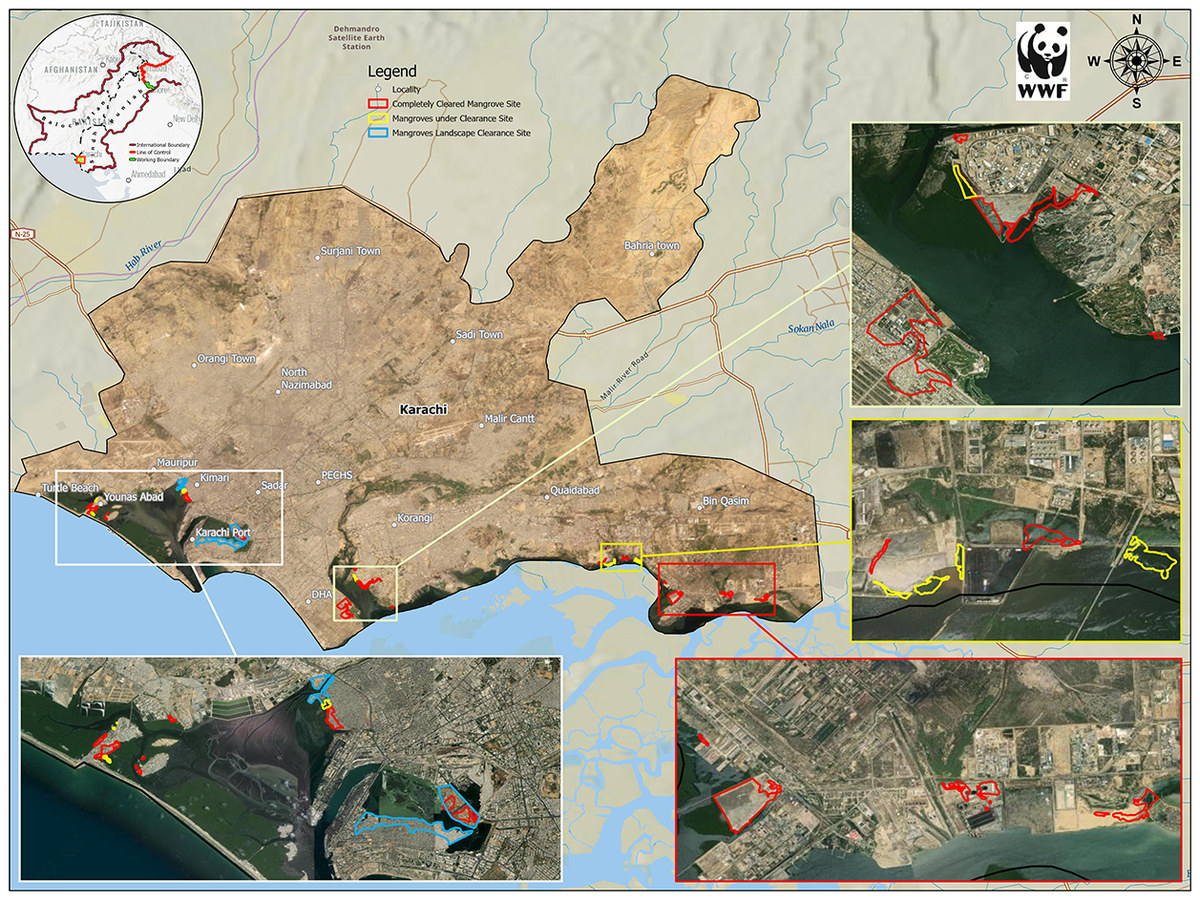KARACHI: A leading international organization focusing on environmental research and conservation said on Friday mangrove forests in Pakistan’s southern metropolis of Karachi, which shield the city from climate-induced disasters, face a significant threat due to the unchecked expansion of housing schemes and development projects.
Mangroves are part of coastal ecosystem that adapt to survive in harsh, salty conditions. Mangrove trees evolve to thrive in areas with low oxygen levels, high salinity and frequent flooding. They are found in over 100 countries, with the largest presence in Indonesia, Australia, Brazil and Nigeria.
The World Wildlife Fund (WWF) in its latest report released today warn of significant deforestation in the existing mangrove areas in Karachi, saying they could be destroyed in the near future if immediate steps are not taken through better planning.
The organization proposed the implementation of strict enforcement of laws, reforestation and natural regeneration programs.
“Amidst Karachi’s growing concrete jungle, mangrove forests which protect the city’s coastline against cyclones, strong winds, coastal flooding or other climate change induced disasters, face a serious threat of destruction,” the WWF warned.
“Several locations along the Karachi coast were identified where tracts of mangroves have been cleared for housing schemes and commercial and industrial projects,” it added.

The image shared by WWF on July 26, 2024, shows a map of mangrove clearance sites along Karachi’s coastline. (WWF)
The WWF highlighted that land reclamation and cutting mangroves for housing schemes and uplift projects had result in the decline of Karachi’s mangrove cover, according to the data recorded by geospatial experts who use remote sensing devices.
The report also sheds light on the efforts made by the Sindh Forest Department in the conservation of provincial mangrove forests by planting trees over 55,555 hectares of land along the coastline mainly in the Indus Delta between in the last four years.
“They also initiated various mangrove reforestation and management programs in collaboration with WWF-Pakistan and the International Union for Conservation of Nature Pakistan,” the report said.
However, the organization noted that nearly 200 hectares of mangrove forests along Karachi’s coastline were lost between 2010 and 2022 due to land grabbing and residential projects.
It cited satellite-based evidence of mangrove destruction along the Karachi coast that indicated large tracts of mangroves “completely cleared and converted into residential projects.”
“Mangrove forests are severely threatened by rampant urban development, illegal logging, pollution, and insufficient enforcement of conservation laws,” the report quoted the WWF Pakistan Director General Hammad Naqi Khan as saying.
“This loss of mangrove cover along the coastline has not only increased the vulnerability of local communities to oceanic disasters but also eliminates other essential services including biodiversity support, urban cooling, air purification and storage of carbon dioxide.”
Naqi suggested relevant stakeholders work together to conserve the mangroves given their ecological, economic and social benefits.
The report also highlighted the need to protect critical mangrove areas for their role in mitigating climate change impacts and supporting local fisher communities, recommending continuous monitoring and research using advanced tools to assess conservation effectiveness.















